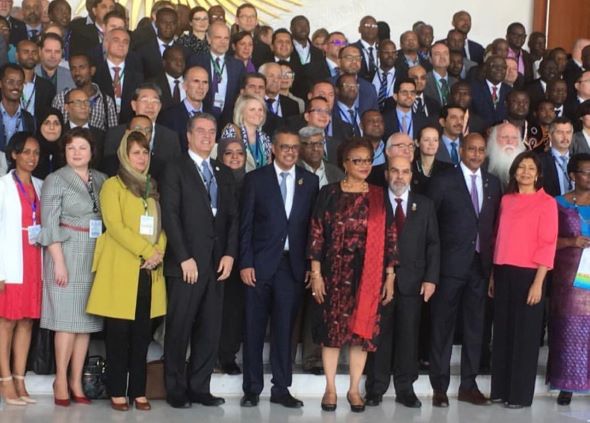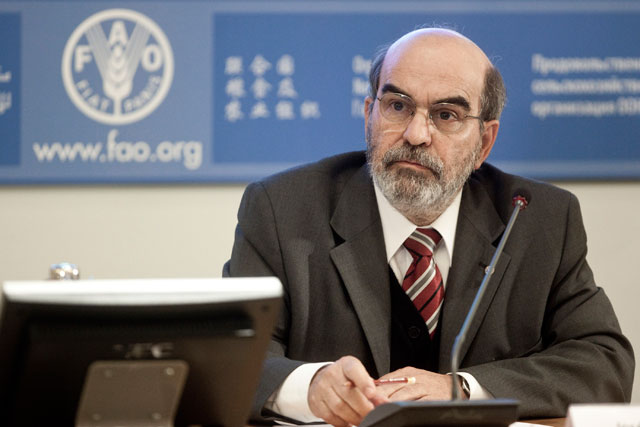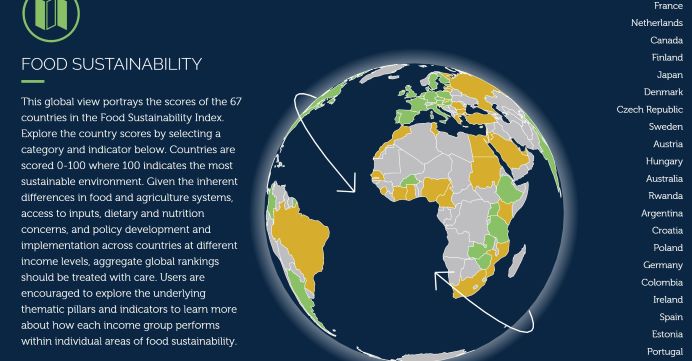WHO’s Ethiopia Summit Brings Food Safety on the World’s Table
 Food for thought?
Food for thought?
This first joint conference brought together various Ministers of Health, Ministers of Agriculture, leading scientific experts, partner agencies as well as representatives of consumers, food producers and distributors to:
- Identify key actions and strategies to address current and future challenges to food safety globally;
- Strengthen commitment at the highest political level to scale up food safety in the 2030 Agenda for Sustainable Development.
The two-day forum brought together health bosses and experts from 125 countries to combat the peril of unsafe food, a hazard that kills more than 400,000 people each year, according to UN estimates.

The United Nations Food and Agriculture Organization estimates that about 815 million people of the 7.6 billion people in the world, or one in ten, are suffering from chronic undernourishment
There is no food security without food safety
“Globally, food-borne illnesses affect 600 million people and cause more than 420,000 deaths each year according to an assessment by the World Health Organization (WHO). Children bear the most tragic toll, both in terms of mortality and due to stunting, which affects 150 million children under the age of five and is often caused by dangerous microbes or parasites that creep into their meals.” Jose Graziano Da Silva, director general of the UN’s Food and Agriculture Organisation (FAO), said in a media statement.
Ongoing changes in climate, global food production and supply systems affect consumers, industry and the planet itself. These changes can have an impact on food safety systems and pose sustainability and development challenges.

“The World Bank reckons that food safety mishaps cost developing countries more than $100 billion a year. An increasingly globalized food supply means that risks from unsafe food can rapidly escalate from a local problem to an international emergency, exposing populations worldwide to food hazards. Many developing countries import a significant share of the food supply for their population, with some – such as the Pacific islands – relying almost entirely on food imports to ensure food security. Therefore, it is absolutely fundamental that countries invest in food safety.” Da Silva emphasized.
This was the first summit that took place in Addis Ababa, Ethiopia, on 11 and 12 February, in a partnership between FAO, WHO and the African Union. It highlighted the importance of food safety to fight all forms of malnutrition and to promote sustainable development.
There is a second conference which will take place in Geneva on 23-24 April 2019, which FAO is co-organizing with WHO and the World Trade Organization (WTO). It will address the importance of strengthening food safety standards for promoting international trade.







